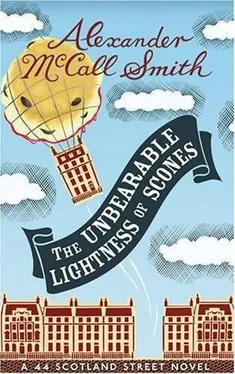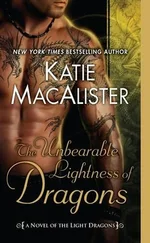Alexander Smith - Unbearable Lightness of Scones
Здесь есть возможность читать онлайн «Alexander Smith - Unbearable Lightness of Scones» весь текст электронной книги совершенно бесплатно (целиком полную версию без сокращений). В некоторых случаях можно слушать аудио, скачать через торрент в формате fb2 и присутствует краткое содержание. Жанр: Триллер, на английском языке. Описание произведения, (предисловие) а так же отзывы посетителей доступны на портале библиотеки ЛибКат.
- Название:Unbearable Lightness of Scones
- Автор:
- Жанр:
- Год:неизвестен
- ISBN:нет данных
- Рейтинг книги:4 / 5. Голосов: 1
-
Избранное:Добавить в избранное
- Отзывы:
-
Ваша оценка:
- 80
- 1
- 2
- 3
- 4
- 5
Unbearable Lightness of Scones: краткое содержание, описание и аннотация
Предлагаем к чтению аннотацию, описание, краткое содержание или предисловие (зависит от того, что написал сам автор книги «Unbearable Lightness of Scones»). Если вы не нашли необходимую информацию о книге — напишите в комментариях, мы постараемся отыскать её.
Unbearable Lightness of Scones — читать онлайн бесплатно полную книгу (весь текст) целиком
Ниже представлен текст книги, разбитый по страницам. Система сохранения места последней прочитанной страницы, позволяет с удобством читать онлайн бесплатно книгу «Unbearable Lightness of Scones», без необходимости каждый раз заново искать на чём Вы остановились. Поставьте закладку, и сможете в любой момент перейти на страницу, на которой закончили чтение.
Интервал:
Закладка:
For the rest of that day they did very little, other than to take a walk along the beach that was only two blocks away from their hotel. This beach stretched for miles, a broad sweep of sand, its surface broken here and there by outcrops of rock. Along the beach, atop the sand dunes that kept suburban Perth from toppling into the Indian Ocean, a long coastal path was the haunt of walkers, runners, exuberant dogs, the sea breeze in the hair and lungs of all.
And there was sun; everywhere there was that sun that painted everything with slabs of light, impasto thick.
“I had no idea,” said Elspeth.
He looked at her. “No idea of what?”
“Of all this,” she said. “It’s like discovering a parallel universe.”
He pondered her words. He knew what she meant, he suspected, because he had been thinking much the same thing himself, but had not found the words to express it. Perth was a world away from Edinburgh, but was not, because in many ways it was so familiar, so redolent of some distant idea of what Britain once had been, but was no longer. The signs of this were sometimes subtle, like the echoes of a familiar tune that one heard a long time ago; at other times they were obvious and arresting. On the drive to the hotel, from the back of the taxi, they had passed a school, and he had seen ranks of boys outside what looked like a school hall beginning to march into assembly. The boys wore khaki shirts and shorts and swung their arms like soldiers on parade; the morning sun shone upon them, benignly. The sign outside the school proclaimed its name: Scotch College.
“It’s very nice,” said Matthew. He felt a momentary guilt, embarrassment perhaps, that he should think such an old-fashioned thought, but it passed. There was nothing wrong, he reminded himself, in appreciating a bourgeois paradise when every other sort of paradise on offer had proved to be exactly the opposite of what paradise should be.
Why do people like Australia so much? he asked himself. And an unexpected answer came to him: it’s because everything that has been destroyed elsewhere, in an orgy of self-hatred, still survives here.
17. A Dream of Love
The proprietrix of Matthew and Elspeth’s hotel in Perth, a woman in her late fifties who wore a faded pink housecoat, had recommended a restaurant overlooking Cottesloe Beach and had helpfully made a reservation for them.
“You have to reserve if you want a table in the front,” she said. “If you get there for sunset you can have a drink while the sun goes down over the sea. That’s a sight for the eyes, I can tell you.
“I went there for dinner,” she continued, “a couple of weeks ago, with my sister. Her husband was an agricultural machinery representative in the wheat belt, you know, and then he died. Men do, don’t they? They die.”
Elspeth laughed nervously, uncertain whether or not she should do so, but unable to stop herself. Men did die; this woman was right, and in taking on a husband you increased your chances of becoming a widow from nothing to… well, to whatever the chances were. It was a morbid thought, and not one that you should think on your honeymoon, although it was inevitable, she felt, that happiness should prompt thoughts of how that happiness might end. It was the same with anything that you might have or might acquire in life: physical possessions might give pleasure, but ownership led to the anxiety – did it not – that somebody would take away from you that which you had. Or you might lose your possessions in some other way. Or your looks; they would go too, as certainly as the sun rose; everything was built on sand, was sand.
She reached for Matthew’s hand and squeezed it. She wondered if such thoughts crossed his mind. Men, of course, were said to be less emotional, more matter-of-fact than women. Did that mean that they did not worry in the way in which women worried? Ever since Matthew had proposed to her and she had accepted, she had worried that he would change his mind. He had shown no signs of doing this, and had seemed every bit as keen as she was to get married, but she had still thought about this, several times a day, and in her dreams too. She had awoken from nightmares in which Matthew had suddenly said things like “What engagement?” or, in one particularly distressing dream, had turned out to be married already, to three women.
Elspeth could not imagine Matthew, nor any man perhaps, dreaming such things.
“What do you dream about?” she had asked him several weeks before the wedding.
He had thought for a moment before he answered. “You, of course.”
“No, I’m serious. Do you have… strange dreams?”
This question had caused a shadow to pass over his face. He did have strange dreams, and some of them he could not relate to Elspeth because she would be shocked. Most people had shocking dreams, he thought; or rather, most men did. They did things that they would never normally do, or even imagine doing, and they never confessed to anybody about such matters; quite rightly, thought Matthew.
“I have strange dreams from time to time,” he said guardedly.
“Such as?”
He was nonchalant. “Oh, I forget. You know how it is with dreams. You don’t remember them for very long after you’ve had them. It’s something to do with how we don’t commit them to memory because we know that they’re unimportant.”
“But they are important!” she protested. “They tell us so much about what we really are. About what we really want to do.”
Matthew was privately appalled, but his expression showed it. “Do they?” he asked. “Do you really think so?”
Elspeth was studying him closely. She had seen him frown when she had suggested that dreams revealed suppressed wishes, and that worried her. He must be remembering something that he had dreamed, some dark thing, and it was worrying him. It had not occurred to her that she might be marrying a man who had a dark thing in his life. “But you shouldn’t worry,” she said. “All of us want to do things that we would never really do, not in a month of Sundays. I don’t think it matters really, because we know that we’ll never do it.”
She was trying to make him feel better, and she succeeded. “Yes,” said Matthew. “I agree. The important thing is what you’re like when you’re awake rather than what you’re like when you’re asleep.”
He was not sure about this, although he expressed the thought with some confidence and authority. And it was a comforting thought, an aphorism of which one might remind oneself after a dream in which one is revealed in perhaps not the best of lights.
“And I really have dreamed of you,” he said. “I meant that when I said it.”
It was true. He had dreamed of Elspeth a few nights earlier. They had been walking along Princes Street together, arm in arm, on the unspoiled side, and he had looked down into the gardens, to the Ross Pavilion, where there were flags all around the open auditorium and a Scottish country dance band was striking up. He had felt so safe, so secure, and had looked up at the Castle on its rock and felt even more so.
It had been a dream of contentment, and would no doubt have been forgotten on waking up, had it not suddenly changed. He had looked down below again and the band had gone, danced away, and the flags hung limp and dispirited, no Saltires, just alien, puzzling symbols – put there without a referendum, without asking the people! And he had turned to Elspeth for reassurance, but she was no longer there. The woman on his arm was his mother.
He could not tell Elspeth this, of course, and he blushed even at the memory. Somebody had once remarked to him that men married their mothers, and girls married their fathers; or at least chose those who came as close as possible to these ideals. He did not think that true, though; it was just another piece of misleading folk psychology.
Читать дальшеИнтервал:
Закладка:
Похожие книги на «Unbearable Lightness of Scones»
Представляем Вашему вниманию похожие книги на «Unbearable Lightness of Scones» списком для выбора. Мы отобрали схожую по названию и смыслу литературу в надежде предоставить читателям больше вариантов отыскать новые, интересные, ещё непрочитанные произведения.
Обсуждение, отзывы о книге «Unbearable Lightness of Scones» и просто собственные мнения читателей. Оставьте ваши комментарии, напишите, что Вы думаете о произведении, его смысле или главных героях. Укажите что конкретно понравилось, а что нет, и почему Вы так считаете.












